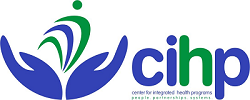
INSPIRE PROJECT
LAFIYAN JIKIN MATA STUDY
INTEGRATING AND SCALING-UP PMTCT THROUGH IMPLEMENTATION RESEARCH (INSPIRE)
FUNDER
Global Affairs Canada
PARTNERS
World Health Organization (WHO), Federal Ministry of Health (FMOH), and Benue and Kaduna States Governments.
LOCATION
Benue, Kaduna
STATUS
Completed
DURATION
2013 – 2016
TREAT THE MOTHER, SAVE THE CHILD
What characterized a project like INSPIRE was how infants born to HIV-positive mothers could stay negative and healthy.
With more than 6 million Nigerian women getting pregnant each year and nearly 200,000 infected with HIV, the INSPIRE project premised on treating all enrolled HIV-positive mothers to reduce the risk of transmission to her child.
Through a comprehensive PMTCT care and treatment program, CIHP enrolled mothers and their HIV-exposed infants in the stages of preconception through antenatal, labor/delivery and postnatal periods during which we also prioritized diagnosis, testing and a strong adherence to antiretrovirals.
The INSPIRE project was a cluster of six localized intervention studies conducted in 3 countries; Malawi, Zimbabwe and Nigeria.
CIHP implemented the Lafiyan Jikin Mata (LJM) research between year 2013 to 2016 in Benue and Kaduna states of Northern Nigeria with an aim to assess whether retention of HIV-positive women and mothers will improve through Continuous Quality Improvement using a Breakthrough Series (CQI-BTS) in local district hospitals and primary health care clinics.
At the heart of a global plan to eliminate new HIV infections among children while keeping their mothers alive, CIHP conducted the implementation research Lafiyan Jikin Mata—loosely interpreted as “Excellent Health for Mothers”—to promote quality of services by engaging and building the capacities of health workers from different facilities through collaborative learning, increase turn-out of patients, and reduce long waiting times in receiving treatment.
This effort addressed critical factors that were barriers to retention and follow-up to scale-up the previously established poor rates of 40% reported for specific retention-in-care of HIV-positive pregnant women programs in Nigeria.
Upon the CQI-BTS approach and using a cluster randomized controlled trial, the LJM results also: served as guide to facilitating health systems strengthening; benefited policymakers and program managers seek to improve retention rates in HIV care programs; informed whether quality improvement interventions are an effective means of improving retention in prevention of mother-to-child transmission of HIV programs.
IMPACT
The primary outcome measure for the LJM study was retention of HIV-positive mothers in care at 6 months postpartum.
So across sixteen (16) randomly selected but eligible, and consented health facilities (6 General Hospitals and 10 Primary Healthcare Centers) in Benue and Kaduna states, the study achieved its aim of improving retention from 40% to at least 70% based on programmatic definition, however the overall retention rate based on study definition was just 43%.
This project also contributed to reducing infant mortality rate, a key focus of the United Nation’s Sustainable Development Goals (SDGS), with an effort that prioritizes quality of care for over five-hundred (500) HIV-positive women and a chance at life for infants.
Some PMTCT service uptake and retention outcomes in the two implementing states through collaborative learnings included:
- Same day clinic attendance, HIV testing and ART drugs dispensing
- HIV infected pregnant women received option B+ test and treat,
- Option B ARV Prophylaxis according to National Guidelines,
- Lifelong ART based on CD4 count
- Postpartum visits and follow, received routine CIHP Support (Standard of Care (SOC), Data Quality Assurance (DQA).
- Application of Breakthrough collaborative series (BTS) for 18 months, and establishment of Facility Quality Improvement Team (FQIT).
